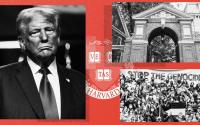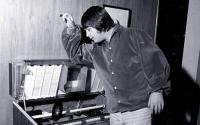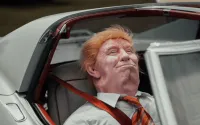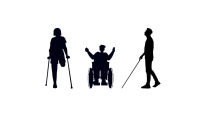They began dancing in the streets in Harlem just before midnight. A middle-aged lady in a flowing turquoise dress hopped out of her Nissan at the intersection of Adam Clayton Powell Boulevard and 125th Street, and gyrated across the upper Manhattan tarmac. Traffic jammed up behind her, but the NYPD officers, manning their curbs with handguns on their belts and smiles on their faces, turned a blind eye. After all, Barack Obama had just been elected President of the United States. This was neither the time nor the place to dampen celebrations.
Harlem, the upper swathe of New York's Manhattan island, is the unofficial capital of African American culture in the United States. Martin Luther King preached there at the Abyssinian Baptist Church on 138th street, Ben. E. King sung about the neighbourhood in 'Spanish Harlem,' and Malcolm X was assassinated there at the Audubon ballroom in Washington Heights. For years the district's rows of handsome brownstone townhouses also suffered from crime and neglect, but much of that was forgotten last night, as huge crowds gathered to watch and rejoice as America elected its first black president.
Even before the New York polls closed at 9 pm spectators began to congregate below the sheer concrete and glass walls of the state senate building on 125th Street. There a statue of the black political leader Adam Clayton Powell strolls into a brighter future on a slanted plinth, and the authorities had erected a 'jumbotron', a gigantic television screen to project the results into the night in lurid colour.
The result was announced at 11 pm New York time, and by then the huge crowd had spilled out of the plaza to ram the pavements beneath hoardings for the American cellular provider Verizon. When the news came that Obama had won some of those standing on the anti-slip aluminium of the temporary seating cheered, while others hugged each other.
"I think it's wonderful, I think it's fantastic," said Diane Palmer, a 49-year-old who works as a director at Estée Lauder. "He is a president for everyone."
Then a rhythmic chant began: O-BAM-A, O-BAM-A. Meanwhile, below, near the stalls where vendors were doing a roaring trade in badges showing the new president-elect with Martin Luther King, a troupe of Ethiopian drummers beat out a wild tattoo.
"You've got white people dancing with the Africans," said Glenda Farr, a 51-year-old retiree. "It's good to see everyone together."
In archetypal American fashion public mood held that the Democratic victory was not official until it had been called by one of the major television networks, and the oracles of CNN and MSNBC would not stamp the result until the Pacific Time zone polls on the West Coast closed. However, an Obama win had begun to look almost certain much earlier in the evening
When Ohio was called for the Democrats at 9:30pm the mood in Harlem noticeably relaxed. "I think it's great, Obama's going to win," said Marvin Gatling, a former special forces soldier who had dressed for the evening in his combat fatigues and green beret.
"It gives the people of Harlem a time to feel good about the government again," added the 63-year-old, who served two tours in Vietnam.
The unspoken irony behind the celebratory atmosphere though was that votes cast by black Americans in Harlem had very role in Obama's victory. New York has not voted for a Republican presidential candidate since Ronald Reagan in 1984, and although there are strongly contested races lower down the ticket, there was never any doubt that Obama would carry the state's 31 Electoral College votes.
Yet that reality did no more to dampen turnout during the day in Harlem than the few fat raindrops that fell on the rejoicing crowed later on. Residents voted keenly from the opening of the polls at 6am, and stations in schools and community centres rang to the distinctive sound of New York's lever operated electoral machinery.
Inevitably there were a few problems, such as the machine that malfunctioned at the Oberia Dempsey Center on West 127th Street, causing the queue to swell as voters had to cast paper ballots instead.
However, despite the localised gripes, the process worked satisfactorily, and history was made.
And then, bizarrely, after the result had been announced and as the party was in full swing, a tide of white faces appeared amongst the black crowd, as Columbia University students and other young professionals marched east after the police closed down celebrations on Broadway.
In some ways it seemed to symbolise the gentrification that some long time Harlem residents fear is tearing the soul out of their neighbourhood.
But it was also true that in the place were so many Civil Rights barriers were fought, another racial barrier had quietly dissolved.






